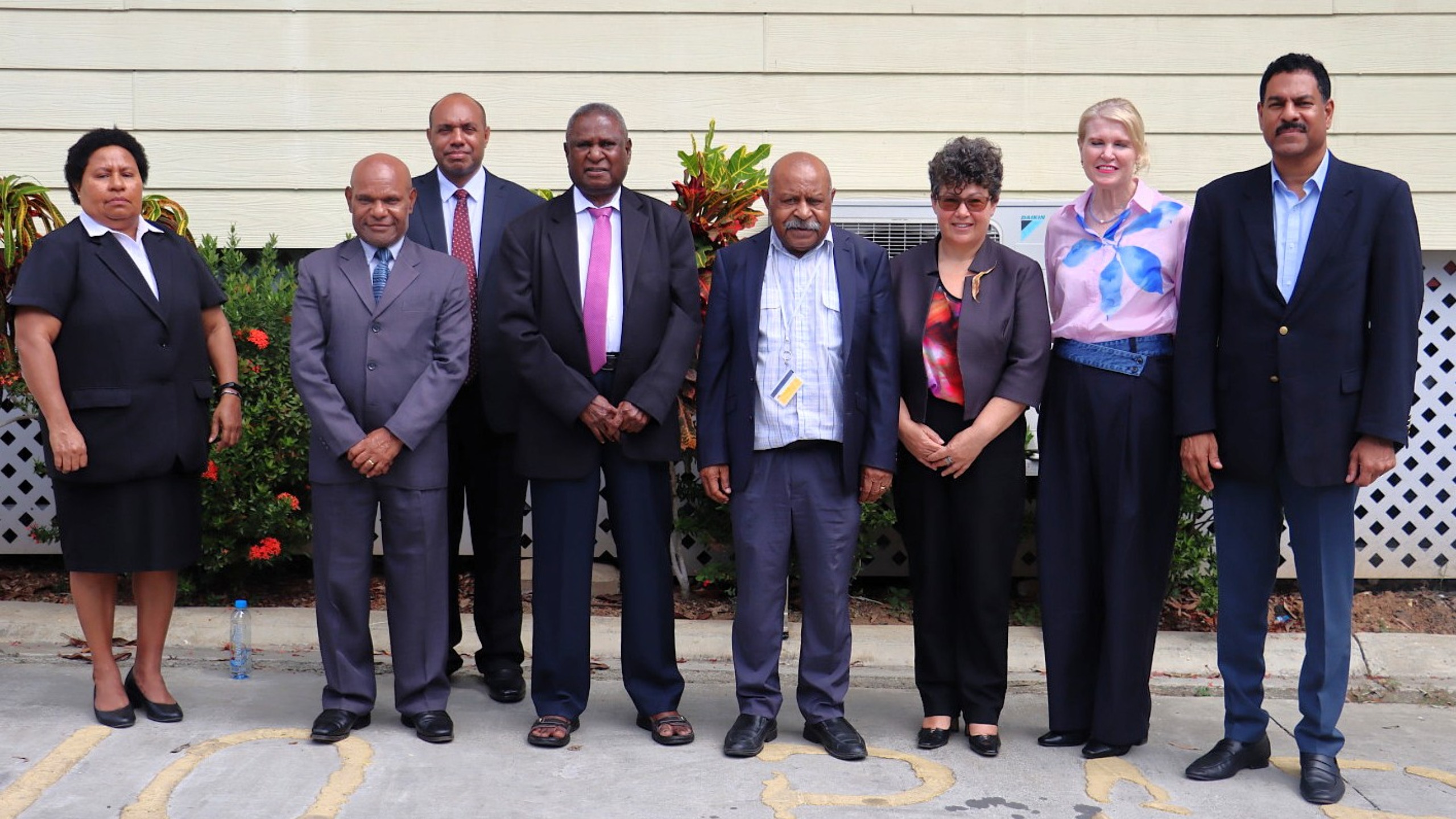Judges observe International Judicial Well-being Day
Judges of the Supreme and National Courts of Papua New Guinea (PNG) observed the first International Judicial Well-Being Day last Friday July 25, 2025.
On the occasion, the Chief Justice Chief Sir Gibuma Gibbs Salika delivered a powerful message highlighting the importance of physical and mental wellbeing for Judges and Court staff, noting that wellness is essential for the effective delivery of justice.
On 4th of March the United Nations General Assembly unanimously declared 25 July as the International Day for Judicial Wellbeing earlier this year, following the adoption of the Nauru Declaration in 2024. PNG’s Judiciary has long recognized the link between judicial integrity, access to justice, and the wellbeing of those who serve in the justice system.
In his address, the Chief Justice acknowledged the immense dedication of Judges and Court staff who often sacrifice their own health due to the demands of their roles. He urged all members of the Judiciary to take time for reflection and self-care, stating, “Judicial wellbeing is not a luxury but a necessity.”
He also emphasized the role of mental health, a topic often overlooked in cultural conversations, and called for greater openness and institutional support. “In the same way that we must seek medical help for physical ailments, we must not hesitate to seek support for mental health challenges,” he said.
The Chief Justice expressed gratitude for the support of the United Nations Office on Drugs and Crime (UNODC), which continues to advocate for judicial integrity and wellbeing, both of which are crucial in the fight against corruption and in strengthening public trust in the judiciary.
“The Nauru Declaration clearly states the judiciary is made of human beings – individual and independent persons appointed to the judicial office; therefore, the Judiciary is fundamentally a human system, dependent upon the collective human capacities and faculties of individual judges. My colleague judges and those performing corporate and registry support to the judiciary, Judicial Wellness matters. It matters because in this jurisdiction judges lack time for physical and mental care; experience stress frequently due to workload and isolation and at times feel unsupported by their institutions. These factors and others you may experience reflect realities that is experienced by each one of us. Judicial Stress, if unaddressed, can adversely erode decision making, delay justice and diminish public trust. I want to unequivocally state that each Judge and every court staff has the commitment from this Judiciary to do all that it can to promote your health and wellbeing,” he said.
Reflecting on his own recent health recovery, the Chief Justice noted the importance of compassion and community within the judiciary, thanking his colleagues for their support.
He concluded by affirming the Judiciary’s commitment to promoting wellness through institutional measures and by encouraging all members of the court system to recognize the value of their health. “You are valued, you are seen, and your wellbeing matters,” he said.
The Chief Justice also welcomed the participation of regional counterparts, including Hon. Justice Rangajeeva Wimalasena, the President of the Nauru Court of Appeal, Hon. Sir John Muria, Chief Justice of Tuvalu and Hon. Tetiro Semilota, Chief Justice of Kiribati and fellow judges who joined in recognizing this historic milestone.
Speaking at the occasion via zoom was Chief Justice Semilota, who spoke about the challenges her jurisdiction faced in regards to Judicial Well-Being.
Also speaking via zoom at the International Day for Judicial Wellbeing, the Chief Justice of Tuvalu reflected on the origins of this global initiative, tracing it back to the adoption of the Nauru Declaration on 25 July 2024.
He emphasized that the declaration marked a critical shift in acknowledging that judges are human beings with real needs, challenges, and vulnerabilities.
“Judicial wellbeing is no longer a taboo subject. It is not a luxury-it is a necessity for justice, integrity, and the rule of law.”
The Chief Justice noted that the wellbeing of judges has long been overlooked, especially in small and developing jurisdictions, where judicial officers often work under geographical isolation, with limited personnel, resources, and support. Judges in such contexts frequently take on multiple roles, often without adequate administrative or collegial assistance.
He affirmed that the Nauru Declaration brings global attention to these realities and calls for meaningful action to support the physical, mental, and emotional wellbeing of those who uphold justice systems around the world.
Delivering his remarks via zoom at the International Judicial Well-Being Day, the Hon. Justice Rangajeeva Wimalasena, President of the Nauru Court of Appeal, extended his gratitude to the organisers and commended the extraordinary collaboration that led to the creation of the Nauru Declaration on Judicial Wellbeing.
Justice Wimalasena recalled the inception of the Declaration in 2024 as an ambitious yet unprecedented effort, carried out entirely online with the support of key regional leaders, including Chief Justice Sir Gibbs Salika of Papua New Guinea, Deputy Chief Justice Ambeng Kandakasi, Chief Justice Sir John Muria, and Chief Justice Tetiro Semilota, among others.
“With dedication from the drafting committee, we were able to craft seven guiding principles to promote judicial wellbeing across the globe,” he noted.
He praised Chief Justice Sir Gibbs Salika for being the first to pledge formal adoption of the Declaration in Papua New Guinea, a commitment that has since been honoured. In addition, Justice Wimalasena lauded Sir Gibbs for taking the further step of committing to host the next Judicial Wellbeing Conference in PNG, a promise that will soon be fulfilled with the upcoming International Judicial Integrity and Wellbeing Conference, which is set to welcome judges and leaders from around the world.
“Chief Justice Sir Salika, your remarkable commitment to advancing this cause is both commendable and inspiring,” Justice Wimalasena concluded.

Chief Justice of Papua New Guinea, Chief Sir Gibuma Gibbs Salika and Deputy Chief Justice, Ambeng Kandakasi and judges of the Supreme and National Courts of Papua New Guinea.



